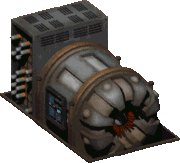|
Truga posted:this hasn't been an issue for a very long time now That's the same as when I installed it last time, then. I disagree that a tiny banner on the bottom of a page you usually wouldn't have to visit when downloading an ISO made this a non-issue. Especially when comparing it to Ubuntu in this case.
|
|
|
|

|
| # ? Jun 2, 2024 14:20 |
|
Splode posted:I'm really enjoying pop as my first distro, out of curiosity why is ubuntu more popular than straight debian? It seems like lots of things are debian based but few people use it directly, why is that? Ubuntu started as a desktop-focused distribution. It's original advantage over Debian is that it would come with all the glue scripts necessary to make all the component of your laptop work out of the box (for a sufficiently popular laptop). In the quest for profitability Ubuntu has branched off into other directions, namely cloud and IoT, often dragging their desktop users along with changes they're not necessarily interested in. Others branched off of Ubuntu with either a more-specific focus (gaming) or just to avoid the more controversial changes that Canonical was/is making. I run Ubuntu (specifically Lubuntu) on desktops where I want things to just work without having to configure much, and Debian most everywhere else (servers, Chrome OS chroots, etc.).
|
|
|
|
Emong posted:People are mostly annoyed that they're replacing normal packages with snaps invisibly. Running "sudo apt install firefox" on Ubuntu gets you the snap package for Firefox and there's no way around that. It's just a very weird choice that no one likes.  What that cant possibly be true right? Like its one thing for the GUI Software Center to default to snaps (the inverse is true with flatpaks) but they're actually intercepting / aliasing apt commands too? Holy poo poo
|
|
|
|
i think it's not so much intercepting apt commands as it is that their firefox package is now basically a "preinst" script that runs snap install firefox lmao e: yeah, lol, firefox package just redirects to firefox-snap, which is a couple icons and a .desktop entry, and a preinst script which contains code:Truga fucked around with this message at 17:40 on Sep 21, 2022 |
|
|
|
ExcessBLarg! posted:Ubuntu started as a desktop-focused distribution. It's original advantage over Debian is that it would come with all the glue scripts necessary to make all the component of your laptop work out of the box (for a sufficiently popular laptop). In the quest for profitability Ubuntu has branched off into other directions, namely cloud and IoT, often dragging their desktop users along with changes they're not necessarily interested in. Others branched off of Ubuntu with either a more-specific focus (gaming) or just to avoid the more controversial changes that Canonical was/is making. Also it had a good, easy-to-use GUI installer that could automatically get grub working for dual-boot at a time when debian was still a text console and manual configuration. Back 10-15 years ago it was a pretty big deal how easy Ubuntu was to install for non-experts. Ubuntu brought a *lot* of people into doing at least casual dual-boots and poking around with linux. The problem was that wave of new linux users was a kinda one-time thing, the year of linux on the desktop still hasn't happened, and even owning a majority of the desktop linux userbase didn't make any money. The things that made Ubuntu unique and special aren't in any way unique anymore.
|
|
|
|
Emong posted:People are mostly annoyed that they're replacing normal packages with snaps invisibly. LXD is annoying. I don't use it, but it's a default installation on Ubuntu Server, so now the server install invisibly pulls in the lxd snap. The "at the request of the upstream project" part may be true, but LXD is sponsored by Canonical so they're also pretty clearly throwing their weight around here. Firefox makes some sense. Browsers are a priority target for 0-days, so keeping them up-to-date via a "multi-distribution" (or at least, a multi-release) build makes sense versus Mozilla volunteers having to backport security updates to multiple LTS firefox-esr builds. Conveniently this gives an excuse for Ubuntu desktop installations to pull in the firefox snap, but I don't know, there's worse things in the world. Snaps themselves are technically sound and the client is free software. The two major complaints in that the backend, the snapcraft.io store, is proprietary and owned by Canonical, and that snaps do forced updates which isn't compatible with enterprises that have policies against unscheduled/untested updates. Oh, and I guess that flatpak already exists, although it doesn't fully cover the use cases for snaps. ExcessBLarg! fucked around with this message at 19:38 on Sep 21, 2022 |
|
|
|
ExcessBLarg! posted:Snaps themselves are technically sound and the client is free software. The two major complaints in that the backend, the snapcraft.io store, is proprietary and owned by Canonical, and that snaps do forced updates which isn't compatible with enterprises that have policies against unscheduled/untested updates. Oh, and I guess that flatpak already exists, although it doesn't fully cover the use cases for snaps. Don't forget that until they switched from XZ to LZO compression that starting a snap for the first time would take 5-6x longer than a comparable package from apt
|
|
|
|
Voodoo Cafe posted:Don't forget that until they switched from XZ to LZO compression that starting a snap for the first time would take 5-6x longer than a comparable package from apt Also ubuntu diverging the .deb format ecosystem and pissing off upstream debian
|
|
|
|
Klyith posted:Also it had a good, easy-to-use GUI installer that could automatically get grub working for dual-boot at a time when debian was still a text console and manual configuration. Back 10-15 years ago it was a pretty big deal how easy Ubuntu was to install for non-experts. Ubuntu brought a *lot* of people into doing at least casual dual-boots and poking around with linux. Windows 11 pushed me over the edge. I read that article about Windows considering putting ads in the file explorer and went "right, that's it, enough is enough." Valve's massive push to make gaming on linux incredibly simple has also been a huge factor for me, especially as I am too old* to play twitch shooters with cheat protection. I'm not saying this is the year of linux on the desktop, but I do expect the percentage of linux users to creep up a bit this year and next. It is very funny to me that canonical is absolutely squandering Ubuntu's reputation. Veteran linux users seem to never agree on anything, with the new exception of hating what is happening with Ubuntu. Thanks for explaining the role of debian in the linux community to me!
|
|
|
|
Ubuntu is a business and "reputation" doesn't make money, revenue streams make money. Canonical Inc's business model is to push wholly-owned CLA-licensed alternative infrastructure for Linux by lying and arguing in bad faith, then ... selling licenses to commercial integrators? Using their leverage over the infrastructure projects they control? No idea. They did it with Upstart against systemd, they did it with Mir against Wayland, now they're doing it with Snap against Flatpak. Making any sort of technical criticisms of Snap within earshot of Mark Shuttleworth is considered a career-limiting move at Canonical. System76 (the Pop_OS! fork-of-a-fork hobby distro and rebadged Clevo laptop people) are also transitioning to lying and backstabbing as a business model as well: https://blogs.gnome.org/christopherdavis/2021/11/10/system76-how-not-to-collaborate/ Fedora is good if you want poo poo to just work (with an asterisk that you might need to change a few settings if you have an nvidia GPU), Arch or perhaps upstream Debian is good if you enjoy tinkering. SuSE is probably a good Fedora-like if you want a community of Germans or something idk. Don't use third-degree-fork hobbyist crap, there is absolutely no good reason to. Sapozhnik fucked around with this message at 14:59 on Sep 22, 2022 |
|
|
|
I don't think that's a fair characterization. They didn't change the format, just the compressor used for packages. You can still decompress Ubuntu-flavored debs on a Debian system "manually" (via ar, zstd, and tar), to the extent that using Ubuntu-flavored debs on a Debian system is of any utility in the first place. Debian (or a specific maintainer) is just dragging their feet adding support that was requested four years ago. It's worth keeping in mind a couple of things:
Why does Ubuntu want to change the compression method so "badly"? My guess is cloud-init. If you use AWS to boot Ubuntu AMIs with a cloud-init configuration to install needed packages as part of your autoscailing solution, the time to decompress and install debs is actually a significant part of getting an instance up and running. Moving to zstd makes this significantly faster, which makes Ubuntu's cloud solutions more competitive (so, part of their monetization) but is a general benefit to anyone who uses Ubuntu on AWS even in a free capacity. This is something Debian just doesn't do so they're not as motivated to move quickly on it. Sibling distributions won't agree on everything, but where they disagree this is exactly the from of disagreement I want to see take place where the discussion is public and technically rooted.
|
|
|
|
Splode posted:Windows 11 pushed me over the edge. Same! Splode posted:It is very funny to me that canonical is absolutely squandering Ubuntu's reputation. Veteran linux users seem to never agree on anything, with the new exception of hating what is happening with Ubuntu. Note that their reputation is only squandered in the desktop user audience, who are notoriously grumpy, resistant to change, and not necessarily worth keeping. It's not like you make money on desktop linux. Ubuntu has pivoted to being probably the most popular linux flavor for cloud VM use. AFAIK they're the majority of linux on Azure, which is now more linux than windows. Treat all distros as kinda expendable, never become a distro fanboy. Like the lesson you take from abandoning Windows shouldn't just be "MS bad", it's that nobody really makes an OS just for you and whatever you're using today might be less than ideal in the future. The strength of linux is diversity and choice. Also try not to pay too much attention to stuff like: Sapozhnik posted:System76 (the Pop_OS! fork-of-a-fork hobby distro and rebadged Clevo laptop people) are also transitioning to lying and backstabbing as a business model as well: In the world of free software, drama is the primary currency.
|
|
|
|
what i don't get is, multithreaded xz dpkg decompression is in works, and since it scales almost linearly with core count, it will make zstd speedup irrelevant unless you somehow only have a single core in tyool 2022, while still keeping the smaller filesize, which is always nice. instead of contributing to this solution, ubuntu just pushed their own through instead. also, ubuntu packages are often useful on desktop debians, because many people still only package desktop apps for ubuntu despite the difference mostly not being there anymore
|
|
|
|
Truga posted:what i don't get is, multithreaded xz dpkg decompression is in works, and since it scales almost linearly with core count, it will make zstd speedup irrelevant unless you somehow only have a single core in tyool 2022, while still keeping the smaller filesize, which is always nice. instead of contributing to this solution, ubuntu just pushed their own through instead. And yes, Ubuntu is frequently run on single-core or CPU-constrained VM instances (AWS micro instances, or micro-VMs in general). It would suck to hit your CPU limit while booting an instance if cloud-init has to install xz-compressed packages. Plus there's the whole Ubuntu IoT initiative. Truga posted:also, ubuntu packages are often useful on desktop debians, because many people still only package desktop apps for ubuntu despite the difference mostly not being there anymore But all that aside, does Ubuntu not have a say in the dpkg format? Is it forever "owned" by Debian maintainers? Ubuntu waited three years for Debian to act or offer a sufficient comrpomise before making the switch for their own repos. I think that's a reasonable enough time to avoid introducing a "breaking" change. Mind you, I've been running Debian for 25 years and I appreciate their stability and uh, "deliberateness" to change. But the zstd thing is a really silly thing to get hung up over.
|
|
|
|
Hi gang, so I have mostly tried all the distro's out there and probably enjoyed Manjaro the best, the issue I had in doing a fulltime switch over were that I cannot get my completely normal analog headset to work in any of the distro's I tried. The front panel ports do not work at all, get no sound there, it seems it does register some activity as it changes some settings in the audio panel when I plug them in. If I use the backpanel ports, I run into the same thing, no sound whatsoever and no microphone sound. I tested connecting the headset to the headphone jack of the old logitech 5.1 I use (which works just fine out of the box in any distro) and then I got sound. So I am just left wondering if for some reason my motherboard is at fault. If I test a wireless headset it works just fine aswell. Not being able to use voice communication kind of hampers atleast my usage, as I do game or catch up with people using voice chat. I dunno it might just be user error aswell. I tried posting to the manjaro forum but noone replied to my post. Anyone able to point me to a discord server or something where I might be able to pick someone more knowledeable than me about this? Nothing I find searching online pertain to this particular situation. Also as a sidenote I get weird "Hangups" scrolling in firefox on linux, almost like I have to scroll a bit up before it lets me continue scrolling downwards, which also does not seem to always "fix" it.
|
|
|
|
Debian vs xscreensaver is ancient history now, but is a pretty good example of the shoe being on the other foot and debian not doing what the upstream wanted. Everyone wants respect & deference when they're the upstream, nobody wants to do what some rear end in a top hat is demanding when they can just take their ball and go home by forking.
|
|
|
|
ExcessBLarg! posted:But the zstd thing is a really silly thing to get hung up over. Blue Waffles posted:Also as a sidenote I get weird "Hangups" scrolling in firefox on linux, almost like I have to scroll a bit up before it lets me continue scrolling downwards, which also does not seem to always "fix" it. Blue Waffles posted:Hi gang, so I have mostly tried all the distro's out there and probably enjoyed Manjaro the best, the issue I had in doing a fulltime switch over were that I cannot get my completely normal analog headset to work in any of the distro's I tried. also, post the audio parts of lspci i guess. some audio modules on motherboards have really weird defaults and might need custom settings
|
|
|
|
Blue Waffles posted:Hi gang, so I have mostly tried all the distro's out there and probably enjoyed Manjaro the best, the issue I had in doing a fulltime switch over were that I cannot get my completely normal analog headset to work in any of the distro's I tried. A: you probably want to be in the SHSC linux thread, which is a better place for experts and troubleshooting than the thread for Games B: do inxi -bA and paste the results to show your hardware & audio config C: what are the logitech 5.1 speakers connected to? D: As a fellow manjaro user, their forums are pretty suck-rear end the couple times I've looked at stuff there. It's a decent strike against the distro.
|
|
|
|
Sorry I should have written clearer, the 5.1 speakers are connected to the subwoofer, then the subwoofer is connected to a "control unit" sorry if I am writing it wrong here, which have three cables connected to the backpanel of the motherboard. one cable for the front, one for back and one for sub. The headset works just fine both backpanel and front panel in windows so unless linux changes up the way power is regulated it should not be that. I will post those things later on. Should I do so in the other thread? I will get the data once I have time to switch over to linux partition. Thank you both for replying. Blue Waffles fucked around with this message at 18:20 on Sep 22, 2022 |
|
|
|
Klyith posted:Debian vs xscreensaver is ancient history now, but is a pretty good example of the shoe being on the other foot and debian not doing what the upstream wanted. The Debian-vs-Mozilla trademark stuff was a mess too, and probably took 3 years off my own life. They had already forked and I just wanted them to name it appropriately so people didnít get confused (and packages didnít conflict). Ah, good times. Inspired by my joyous Steam Deck experience, Iím going to give EOS a try and then maybe get fancy with Proxmox to see if I can drive multiple VMs playing GPU-craving games because 3950X+3090+64GB should really be able to.
|
|
|
|
Pretty interesting talk from KDE about the deck https://youtube.com/watch?v=a0gEIeFgDX0&feature=share&si=EMSIkaIECMiOmarE6JChQQ
|
|
|
|
Lifroc posted:Fedora is the hot poo poo these days. Go Fedora. Pretty good list, but also will add: if you want to be a poweruser with a hella custom window manager and setup, arch is your best bet as the distro that allows you to tinker as much as you want with a packaging system that supports it and removes the unnecessary tinkering.
|
|
|
|
Truga posted:this hasn't been an issue for a very long time now And it will as of just now not even be an issue with the official isos either. Splode posted:why is ubuntu more popular than straight debian? I use Debian, Debian is great. But yeah even outside of firmware it can expect a lot out of you. Nothing hard, and I actually think it's easier to find good advice when something's broken on Debian than Ubuntu, Ubuntu by being so popular has a little bit of a blind leading the blind problem. Also, even though Ubuntu packages come from Debian (I think they fork testing? But maybe Sid, I don't remember) they're not the same. Ubuntu packages get modified a lot. A big example, last I checked anyway, is the Nvidia proprietary driver. The Ubuntu package does a lot more than the Debian package and I think included some other scripts that aren't from Nvidia and aren't in the Debian package that do various things. And that makes the package just kinda work usually on Ubuntu, but on Debian it's not uncommon to have a clean install of the Nvidia driver leave you unable to get into your de without extra stuff. I got one machine with a mobile Nvidia GPU, on Ubuntu it just works. On Debian, every time my dm updates (I use sddm but its pretty much the same deal with anything else) it overwrites some configs that aren't in what debian considers a config directory (which is stupid) so therefore it allows them to be overwritten, then I gotta go put it in there again from a terminal. It's no big deal to me cuz I'm comfortable doing that, but if you're generic tech YouTuber or something it's maybe a problem. Also Ubuntu has ppas which people like, so you can pretty easily get something not in the repos. Debian will never have ppas because it doesn't match the Debian idea of "trust" at all. And Debian is right, ppas are easy but are a terrible idea.
|
|
|
|
Debian deciding to include non free firmware on the installation media will solve my biggest gripe with it, it will be much easier to recommend now IMO. On the other hand, Fedora decided to not enable patented video codecs anymore by default which will make it more annoying for the regular user.
|
|
|
|
Not really, youíre already adding rpmfusion anyway.
|
|
|
|
Fedora, SuSE, etc are not removing codec support they're disabling a certain kind of hardware acceleration for nonfree codecs in the open source GPU driver. It still works if you install the proprietary drivers like Nvidia's or intel-media-driver. It's not not another lil pain in the rear end for no reason other than capitalism but it's not like you can't watch all your pirate animes just fine on cpu decoding if there's not an easy way of installing a recompiled Mesa with all that poo poo turned back on.
|
|
|
|
The codec drivers have been split out into separate libraries even within Mesa, so installing them from a separate package will be trivially easy.
|
|
|
|
I've been following the Intel Arc stuff a bit. I don't have a gaming PC but even if I did, the last time I purchased a discrete GPU was a Riva TNT2. However, I've been using Intel's integrated stuff on Linux for quite a while and they're to be commended for driving much of the effort on Linux DRM and improving the state of Linux graphics in general. So Intel recently announced the Arc A770 for sale. The A770 16 GB is $349 (!). Price-wise that's insanely competitive. The real issue with Arc is that it's a new card that's not "trusted", and their Windows OpenGL and DX 9/10/11 driver underperforms significantly. I don't know if anyone has tried it for Linux gaming. Anyone know if review units have gone out? I'd be curious how it performs with DXVK--it might be an insanely good option if everything you're doing is Vulkan (or MesaGL I guess) anyways.
|
|
|
|
ExcessBLarg! posted:So Intel recently announced the Arc A770 for sale. The A770 16 GB is $349 (!). Price-wise that's insanely competitive. The real issue with Arc is that it's a new card that's not "trusted", and their Windows OpenGL and DX 9/10/11 driver underperforms significantly. I think it's a bit early to call it insanely great value when all we have to go on is Intel's own performance numbers. The A380 underperformed on that standard. Also it's being priced against the 3060 & 6700XT, but those are also both at the tail end of their generation. So right now it's a good comparison. But by next spring the midrange of new generation stuff from Nvidia & AMD is gonna be very different competition. So if buying a card right now isn't a top priority I'm not sure it's a good overall deal. Review cards are out so you'll have better answers soon.
|
|
|
|
Reviews go up tomorrow I believe.
|
|
|
|
Even then almost all reviews will be for Windows drivers. Keep an eye on https://www.phoronix.com/ I'm sure they will try some to try at some point.
|
|
|
|
It's up: https://www.phoronix.com/review/intel-a750-a770-arc-linux
|
|
|
|
Happy to report that I completed a fully modded run of Fallout 4 with Mod Organizer 2 and Steam Tinker Launch on Linux: A bit shocked since I've been playing since July and update my system a few times a week and it never broke to the point where I'd have to use Timeshift to roll back. Every time I'd see a Wine update i'd check and see if the MO2 and the game would load and it did every time.
|
|
|
|
Just doing some "market research"... is any of you a sweaty gamer that cares about muscle memory in FPSes and spends far too much time making sure all games they play have the same mouse sensitivity? Under Windows I used to use Kovaak's Sensitivity Matcher tool (https://www.kovaak.com/sensitivity-matcher/) to have the same sensibility across all games I played. Nothing like this exists on Linux, but over a couple weekends I found a way to implement it and was wondering if I should package it into a full application for other people, or am I the only one that cares about poo poo like this? The plan would be to distribute it through Flatpak, though I don't know if Flathub would accept it because it requires raw access to the evdev input devices, which is very low level (though possible if you give it the correct permissions)
|
|
|
|
Anyone know if there's a "better" way to change the name of the current user in wine, other than symlinking the $WINEPREFIX/drive_c/users/$USER dir? I need to make C:\Users\deck behave like C:\Users\steamuser, at least temporarily. The symlink does seem to work fine though.
|
|
|
|
I grabbed Ghostwire: Tokyo on a whim and itís playing fine but I have two questions: 1) does anyone know why it might not be responding to my PS5 controller? The Steam Input calibrator and the built in KDE (?) Game Controller settings panel both see it fine. Do I have to do something per-game to make it look like an XBox controller or otherwise futz? ProtonDB has reports of other people using controllers. 2) DLSS isnít offered as an upscaling option, just FSR1/2. Iím running a 3090 and the stock NVIDIA setup (515 -dkms I believe) from a fresh EndeavourOS install. Do I need to configure something to expose that? All in all though I am just loving shocked at how well Linux plays games now. Itís straight up miraculous.
|
|
|
|
Search for dualshock udev rules. The default udev rules do not allow non root applications to open the dev nodes
|
|
|
|
Hmm, OK. I see that Steam installs some udev rules but they might not cover the DualSense. Thereís a thing to make it emulate an XBox controller, but it doesnít have anything about device permissions unless Iím missing something. Maybe it assumes youíve already done that? Iíll dig more, thanks for the lead.
|
|
|
|
If Steam and KDE can access the controller then it isn't a permission issue, they have the same privileges as the game. I'd look at Steam Input first, and make sure that it is is configured to use PlayStation controllers and that the game is using a controller mapping that makes sense. Alternately, if Steam Input is configured to use PlayStation controllers, try turning it off entirely.
|
|
|
|

|
| # ? Jun 2, 2024 14:20 |
|
Subjunctive posted:1) does anyone know why it might not be responding to my PS5 controller? The Steam Input calibrator and the built in KDE (?) Game Controller settings panel both see it fine. Do I have to do something per-game to make it look like an XBox controller or otherwise futz? ProtonDB has reports of other people using controllers. It could be this - I was using the same PS5 controller here: v1ld posted:Elden Ring launched and ran fine in both distros but couldn't get the controller to work in game in either distro though it worked fine to control Steam in Big Picture mode. This turns out to be a recurring problem with myriad possible sources per all the other complaints out there. In my case it's because Steam's controller Desktop Configuration turns out to be empty on Linux and for some reason Elden Ring seems to read the config for in-game controller bindings from there. Also look at the Arch wiki's gamepad entry I dimly remember adding myself to the "input" group to get this to work I think, though that may also have been for keyboard shenanigans. Subjunctive posted:2) DLSS isnít offered as an upscaling option, just FSR1/2. Iím running a 3090 and the stock NVIDIA setup (515 -dkms I believe) from a fresh EndeavourOS install. Do I need to configure something to expose that? VKD3D_CONFIG=dxr PROTON_ENABLE_NVAPI=1 in your environment will enable both RT and DLSS. Setting your Steam launcher to "VKD3D_CONFIG=dxr PROTON_ENABLE_NVAPI=1 %command%" is the easiest way to do this. I briefly manipulated the Steam desktop file or startup file to set this, but rolled that back for a reason I do not remember. May want to go through my 1 page of post history, I walked all these same paths. Most useful post may be this one though. Reading the linked article is well worth it. And yeah, it's loving magic how good gaming on Linux is these days.
|
|
|





























 Before looking at the per-game config maybe?
Before looking at the per-game config maybe?